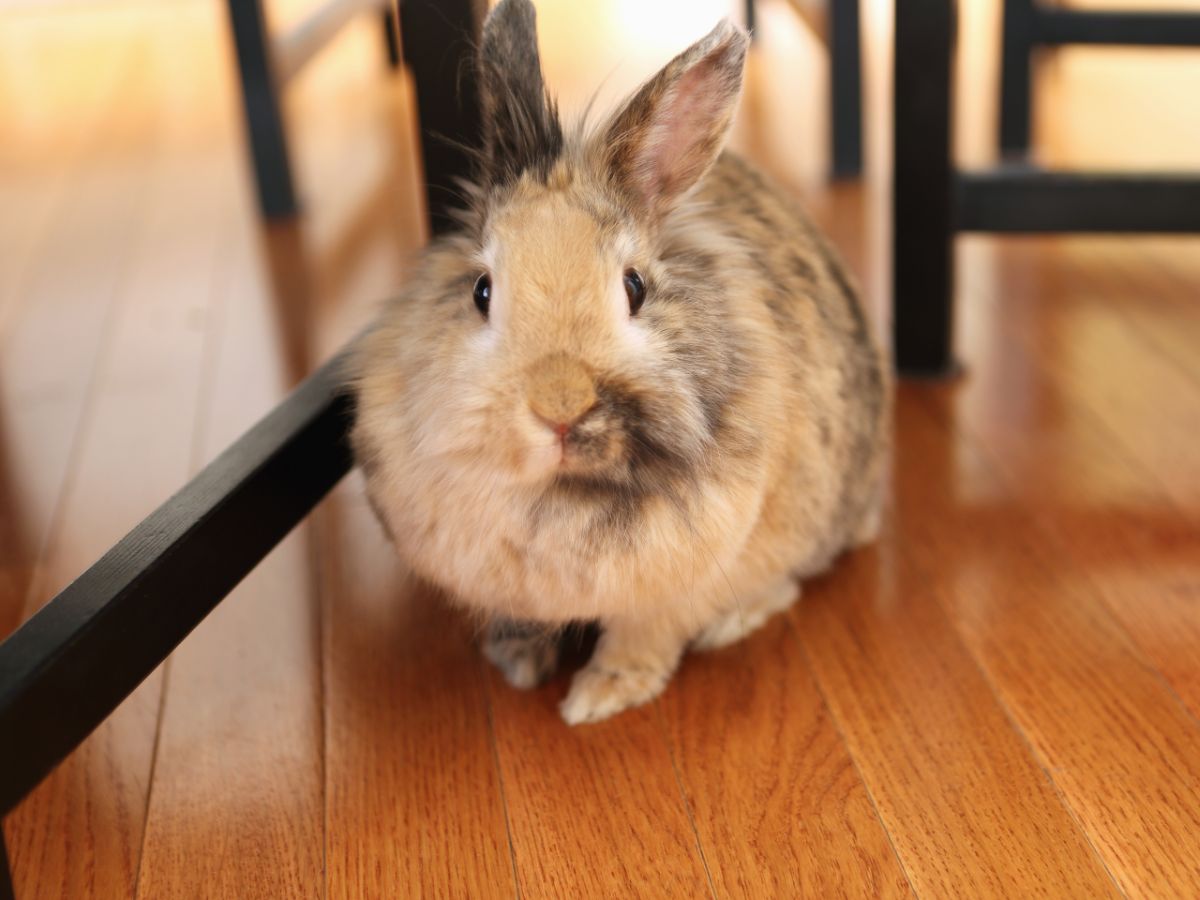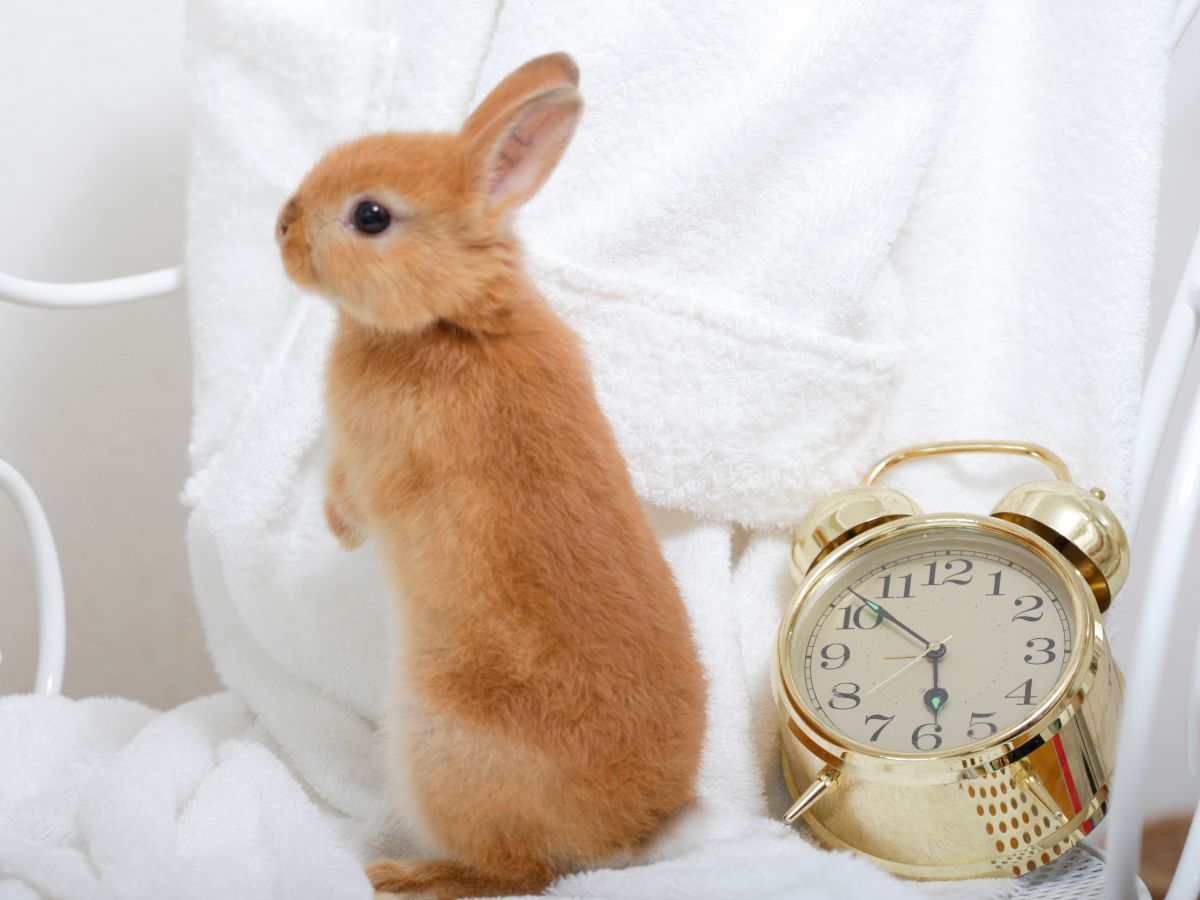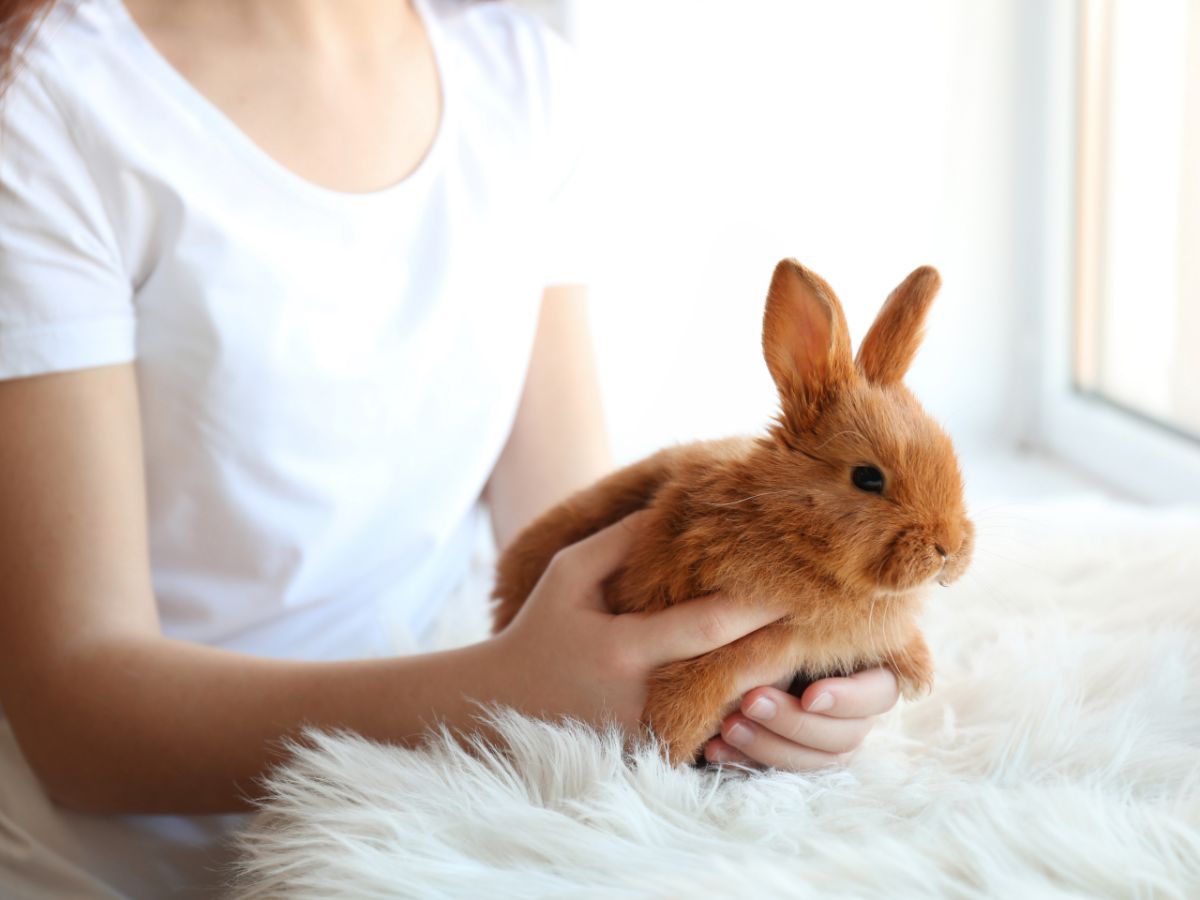It may not be possible for everyone, but free-roaming your rabbit can be a fun activity for you and your bunny friend! Where circumstances allow, free-roaming is preferred over a hutch, but how can you have a free-roaming bunny? Moreso, what are the pros and cons of free-roaming a bunny?
Free-roaming rabbits tend to be healthier and happier but are very sensitive to unfamiliar noise and movements and need a place to hide. Rabbits that are neutered or spayed and litter-trained can be free-roamed with relative ease, although bunny-proofing your home is recommended.
Before we discuss how to have a free-roaming bunny, let’s look at why you would want to let your bunny roam free and why it may not be the best option for you.
Contents
The Pros Of Free-Roaming Your Bunny
There are three major benefits to free-roaming your bunny, and most rabbit owners will tell you they far outweigh the cons.
1. Free Roam Rabbits Are Happier And Live Longer
Remember lockdown? Just like us, animals enjoy their freedom. Rabbits are high-energy, active little animals that can get frustrated and stressed in a hutch.
Medium-sized adult rabbits require a minimum space of 9’10” x 6’7″ x 3’3″ high, and very few hutches are this big. Moreover, two rabbits will need slightly more space. Free-roaming your rabbit will give them more to explore and prevent boredom.
Rabbits can suffer from depression when they feel sad or isolated, and they can die from depression. Free roaming your rabbit will make them feel like part of the household, give them the freedom to approach you when they feel lonely, and ultimately give them a longer, happier life.
2. Rabbits With More Space Are Healthier
Not only will the increased space make your bunnies happier, but it will also make them healthier. By free-roaming your rabbit, you will give them lots of space to run around, do zoomies and binkies and get exercise.
Even the laziest free-roam bunnies will still get more exercise than living in a hutch. Since their food, litter boxes, and toys will likely be further apart, the most basic habits, such as eating and pooping, will require some exercise.
3. The Bond With A Free Roam Rabbit Is Stronger
You will spend significantly more time with a rabbit that has access to the whole or most of the house. Rabbits are easily trained and once you have established some ground rules, expect to have a fluffy bunny chilling with you while you work, watch Netflix or read.
As social animals, rabbits love spending time with their companions. When they have the freedom that comes with free roaming to express and be themselves, is when their personality really shines through. Not to mention, it is unbearably adorable watching them run around and play!
The Cons Of Free-Roaming Your Bunny
Although free-roaming is preferred for your bunny’s health and happiness, it doesn’t come without its drawbacks. There are a few cons to having your bunny roam free that you should consider, but luckily most are manageable.
Some of the cons of having a free-roam rabbit are:
- Rabbit droppings – even well-trained rabbits occasionally leave droppings outside their litter box, but luckily rabbit poop is easy to pick up and doesn’t smell that much
- Sudden movements scare rabbits – rabbits are prey animals, so any sudden movements will have them sprinting to their hide-out. With time, your rabbit will adapt to your “normal” movements, but very sudden movements will always scare them
- Loud noises also scare them – rabbits have sensitive hearing, so loud noises should be kept at a minimum, or you must provide them with a space where they can go to escape the noise
- Accidents will happen – in the beginning, they might accidentally pee on your furniture, on your bed, or on the carpet
- Frequently cleaning – like cats and dogs, rabbits shed their fur, and it gets stuck everywhere! Vacuuming becomes a regular chore, and so does cleaning their litter boxes.

4 Easy Steps To Have A Free Roam Bunny
Bunny-proofing your home is much easier than you may think. Sure, it may take a week or so for you and your bunny to get used to the new arrangement, but rabbits are smart, and it is worth being patient! Follow these four simple steps to make free-roaming a breeze:
Step One: Neuter Or Spay Your Rabbit
Rabbits are extremely territorial and will pee on everything to mark their territory, including your furniture. Male rabbits are especially notorious for this behavior. Getting your rabbit neutered/spayed greatly reduces their urge to mark and simplifies litter training.
While many rabbit owners only neuter the male bunny (buck), having the female (doe) spayed reduces her risk of certain diseases like ovarian cancer, so it is best to have both fixed. Unspayed does also become quite destructive once they reach maturity by digging and chewing on everything.
While you can free roam unfixed rabbits, it is not recommended. Rabbits can be neutered or spayed once they reach twelve weeks old.
Step Two: Litter Train Your Bunnies
Litter training your rabbits is crucial if you want your rabbits to be free-roam. Luckily, rabbits are clean animals, and training them to use a litter box is just as easy as a cat! As mentioned, it is significantly easier to litter train a neutered/spayed rabbit.
Step Three: Bunny-Proof Your Home
Rabbits have an instinct to chew on things, so the best way to prevent them from destroying your belongings is to ensure they can’t get to them.
Hide cables and wires with tubing, keep plants out of reach, and ensure your furniture is protected. If an area is too difficult to bunny-proof, like a home office or kitchen, blocking off that area may be a better solution. Baby gates work wonderfully, but make sure your bunny can’t squeeze through the frame.
Step Four: Give Your Rabbit A Safe Space
Unless you live by yourself and never have visitors, there will be times when your rabbit will need to get away from the commotion. Unfamiliar people, sounds, and movements can make them stressed and skittish.
Therefore, it is important to accommodate them with a space that is theirs only. Your rabbit will feel safer when they have an escape. Another benefit of giving them their own space is that it reduces their urge to mark and claim your furniture as theirs.
Step Five: Prevent Boredom By Giving Your Rabbit Toys
One of the most practical ways of stopping your rabbit from chewing on your furniture or digging on your rug is to keep them distracted with their own toys. When rabbits chew furniture, it is most often because they need something to chew, not deliberate. Not only will toys keep them away from your belongings, but the extra enrichment will also keep boredom at bay.
Conclusion
While having a free-roam rabbit has a few disadvantages and may require some preparation and getting used to, sharing your space with your rabbit can be rewarding and delightful. Your bond will be stronger, and you can be at peace knowing you give your bunny the best life.




